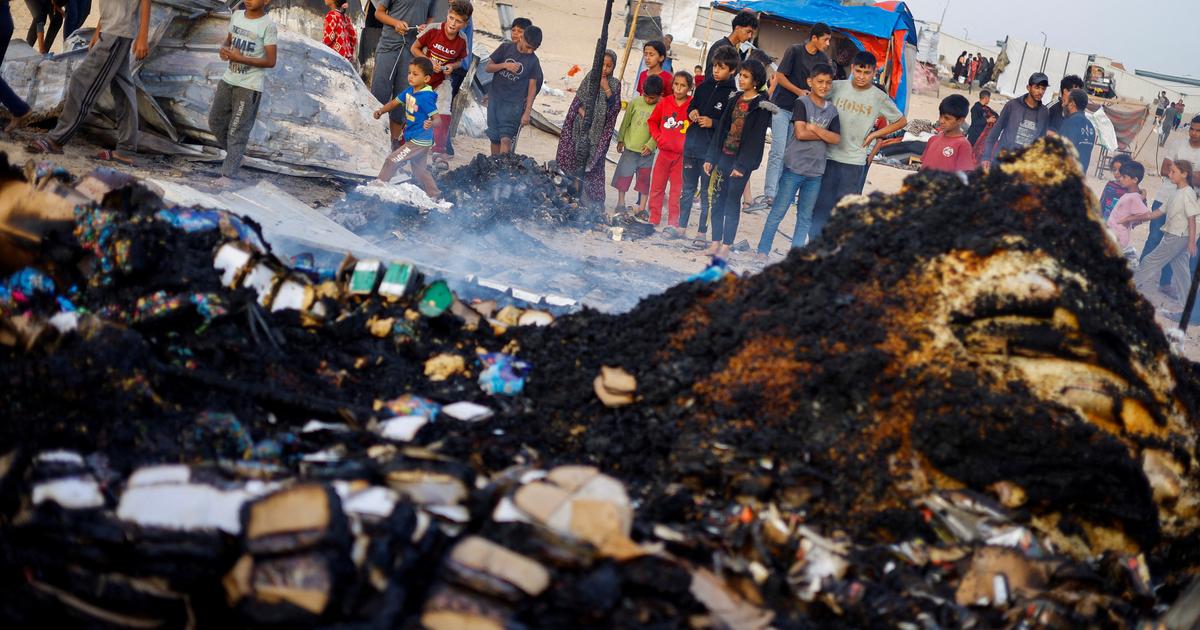Escalation in Rafah: U.S.-Made Bombs and Global Outcry
The Israeli bombardment on a camp for displaced people in Rafah on Sunday has left 45 dead and 249 injured, according to the Gaza Ministry of Health. The devastation has triggered an explosive reaction from the international community, leading to protests in major cities like Paris and an investigation by CNN, which confirmed that the bombs used were manufactured in the United States.
Through a thorough analysis, CNN identified the bomb fragments as parts of a GBU-39 Small Diameter Bomb (SDB), a precision munition manufactured by Boeing. This GBU-39 is designed to hit strategically important targets with minimal collateral damage. This discovery, backed by multiple explosive weapons experts, has underscored the role of U.S.-made munitions in the conflict.
Trevor Ball, a U.S. Army weapons specialist, emphasized that the specific design and guidance components of the GBU-39 make it easily identifiable, even after detonation. Additional experts confirmed the identification, linking the serial numbers to manufacturers in California.
The United States has long been a key supporter of Israel, with a significant portion of its military aid dedicated to supporting Israeli operations. In April, a substantial aid package of $26 billion was approved, allocating $15 billion to Israeli military aid and $9 billion to humanitarian efforts in Gaza. Despite the severe consequences of the bombings, the U.S. administration, led by President Joe Biden, has not shifted its policy towards Israel, continuing its military support.
Footage and eyewitness accounts from the Rafah attack describe a nightmarish scene, with burning bodies, including children, being pulled from the rubble. The heightened tensions and destruction have drawn rapid condemnation from international bodies like the United Nations and several governments, calling for an immediate cessation of the offensive.
Israeli tanks were observed advancing towards Rafah on Tuesday, indicative of a new phase in the seven-month-long conflict with Hamas. The Israeli defense forces have continued their operations despite growing political pressure and global outrage.
Israeli Prime Minister Benjamin Netanyahu labeled the airstrike as a 'tragic mistake' and highlighted ongoing internal investigations. He asserted the necessity of the operations, despite warnings from the international community, including the Biden administration, which has publicly stated that a full-scale offensive in Rafah would cross a defined red line.
- Additional reports detail that overnight strikes in Rafah continued, killing 16 more Palestinians. The continuing Israeli assaults have led to mass displacements, with nearly a million people seeking refuge in makeshift camps or other war-damaged areas.
- Medical services in Rafah remain critically strained, with key facilities like the Tel al-Sultan medical center and Indonesian Field Hospital reportedly on lockdown due to heavy shelling. The World Health Organization has cited severe shortages in medical supplies and staff, exacerbated by ongoing violence and displacement.
- Global leaders, including French President Emmanuel Macron, have called for an immediate ceasefire and adherence to international law, condemning the violence and its impact on civilian lives. Despite these calls, the U.S. remains steadfast in its support, awaiting the results of Israel's internal investigation.
- The conflict, rooted in complex political and territorial disputes, was reignited by the October 7 attack by Hamas, which resulted in significant Israeli civilian casualties and hostage-taking. Israel's subsequent response has led to devastating losses in Gaza, adding to the region's prolonged state of humanitarian crisis.






